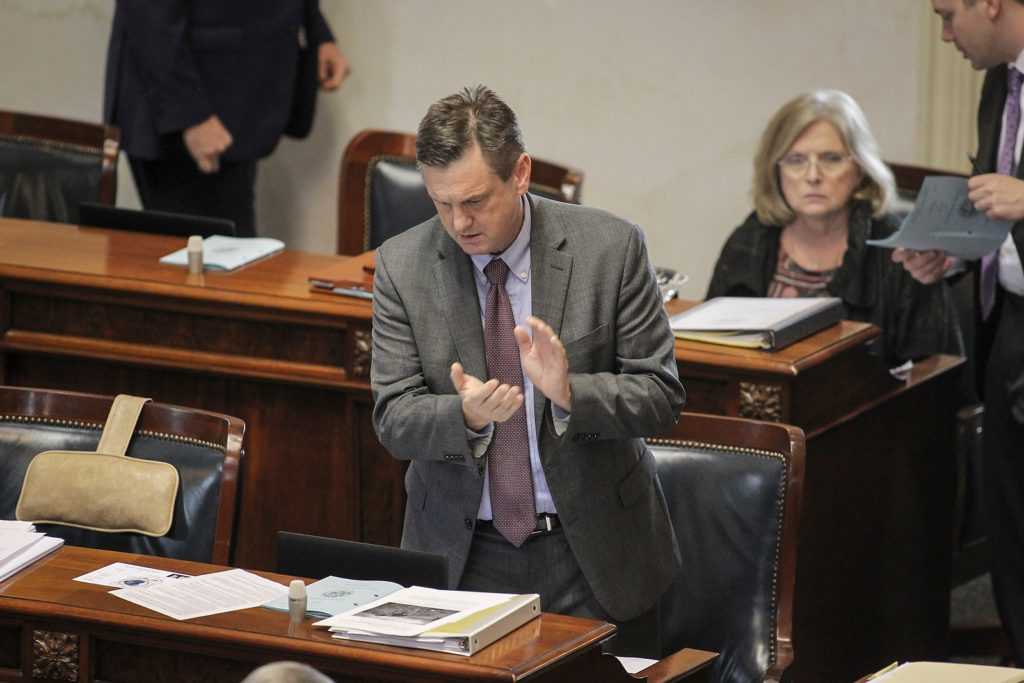This past Tuesday, the South Carolina General Assembly met to consider governor Henry McMaster’s budget vetoes, and as is almost always the case with gubernatorial budget vetoes in this state, they were overridden (except in a handful of cases where appropriations had become moot). However, since time whereof the memory of man runneth not to the contrary, there is now reason for taxpayers to hope that transparency and accountability will be incorporated into the state budgeting process – and that the governor will be empowered as an effective check on wasteful spending.
That hope starts with some recent reforms; as noted by governor McMaster in his budget-veto letter, the legislature this year passed “the most transparent and accountable budget in modern times” because “the leadership of the Senate and House of Representatives took unprecedented steps to require the public disclosure of the sponsors and recipients of earmarked appropriations.”
(An earmarked appropriation, commonly referred to simply as an earmark, is funding for a program or project not originating with a written request by an executive-branch agency.)
Requiring legislators to put their names on earmark requests – and to explain the project or program in writing – forces them to justify themselves, and the prospect of being shamed is (somewhat) a deterrent to wasteful spending. But governor McMaster was right to note that more disclosure is needed in that “the bulk of these earmarked appropriations still lack sufficient context, description, explanation of merit, or justification as to how the recipient intends to spend the funds.”
The rules of both the Senate and the House should be amended to require these additional disclosures. First, those rules should also be amended to require legislators to submit their earmark requests at the beginning of the budget process, i.e., while it is being debated in committee, and to require them to be posted online simultaneous with that submission; currently, at least in the Senate, the rules only say disclosures must be made prior to the budget receiving a second reading. That does not provide legislators or members of the public with sufficient time to review the earmark requests and assess their merits.
Gov. McMaster noted that the 226 earmarked appropriations he vetoed were bundled in seven different proviso subsections, which meant he was unable to wield a budget-veto scalpel to separate wheat from chaff. Such bundling makes legislative overrides of vetoes a certainty (in that it prompts a winning coalition of overriding votes) – effectively eliminating the governor as a check against wasteful spending. Bundling should be banned and each earmark forced to stand on its own merits.
The governor also rightly noted that “no matter how deserving the project, the public must be confident that proper accountability measures are in place to ensure the funds are ultimately spent appropriately by the recipient.” There are laws in place that require earmark recipients to account for how money is spent, but those laws are mostly honored in the breach, with only about 25 percent of recipients complying. Enforcement mechanisms must be strengthened.
One earmark reform proposed by governor McMaster, however, I do not agree with. In his letter, he asks the legislature to “create a public, merit-based competitive grants process for these types of appropriations,” that is, for the earmarked money to be aggregated and then sent in blocks to executive agencies, which would then make funds available to entities that submitted projects that demonstrated (in the judgment of the agencies) “community support and missions consistent with the policy goals and outcomes intended by the General Assembly.”
I do not think a parallel budgeting process run by employees of state agencies is a good idea. In fairness, the governor envisions a process where “all applications and award criteria would be placed online, allowing for public scrutiny and total transparency,” but I fear that what sounds good in theory would not be realized in practice. Better to enact the other common sense reforms proposed by the governor, and to leave the appropriations to those who have the constitutional responsibility of making them, and who will be held to account by voters if they do so unwisely.
*****
ABOUT THE AUTHOR …
(Via: Columbia SC Photographers Travis Bell)
Tom Davis represents Beaufort and Jasper counties in the South Carolina Senate.
***
WANNA SOUND OFF?
Got something you’d like to say in response to one of our articles? Or an issue you’d like to address proactively? We have an open microphone policy! Submit your letter to the editor (or guest column) via email HERE. Got a tip for a story? CLICK HERE. Got a technical question or a glitch to report? CLICK HERE.
BANNER: Travis Bell Columbia SC Photographers



